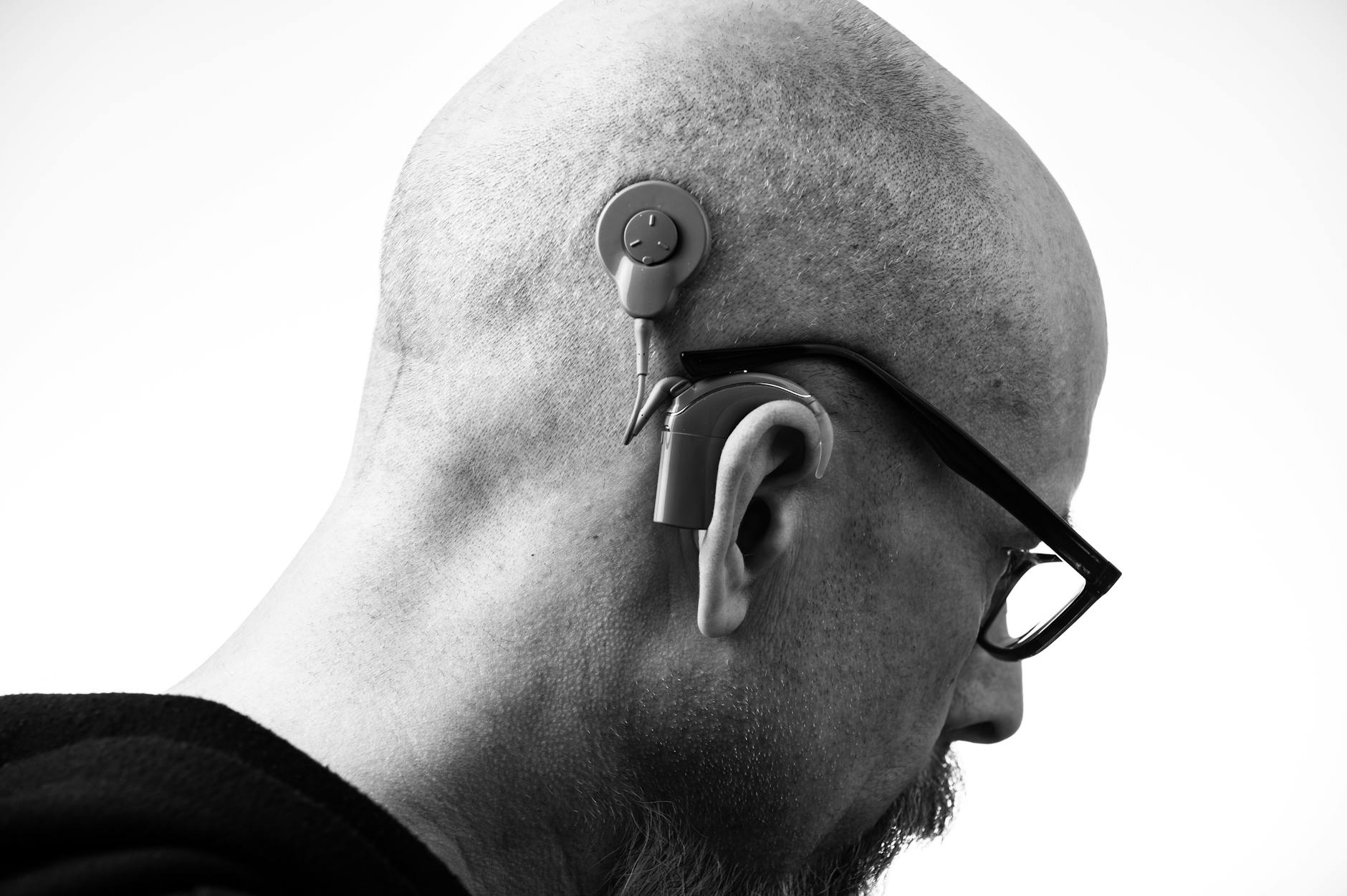Lede: If one ear suddenly goes muffled, hollow, or just… quiet—don’t wait and see. Your ear is pulling the fire alarm. Sudden hearing loss is a time-sensitive medical issue where the first 72 hours can make a real difference. Here’s how to tell if it’s urgent, what to ask for, and how to stack the odds for recovery.
Why the First 72 Hours Matter
Sudden sensorineural hearing loss (SSNHL) is typically a drop of 30 dB or more over at least three neighboring pitches that happens within 72 hours. Translation: a noticeable, rapid drop in inner-ear hearing—not just a little congestion.
Fast action matters because the inner ear is delicate. In many cases, early treatment with corticosteroids improves the chance of recovering some or all hearing. While treatment can still help for a couple of weeks, the sooner you’re seen, the better.
Big takeaway: If your hearing dropped suddenly in one ear, seek same-day care from an audiologist or ENT (ear, nose, and throat) specialist, or go to urgent care and say you’re worried about sudden sensorineural hearing loss.
Is This an Emergency? Quick Ways to Tell
These signs suggest inner-ear (sensorineural) loss that should be treated as urgent:
- One ear suddenly feels “dead,” hollow, or like a radio switched stations in a second or overnight
- New, loud ringing (tinnitus) in that ear, often with ear fullness
- Speech sounds distorted or far away on that side—even if the ear doesn’t feel blocked
- Possible dizziness/imbalance (not required)
Things that more often point to a “conductive” blockage (still worth care, but usually less time-critical):
- Ear feels plugged after a cold or allergies
- Pain, drainage, or a recent swim/shower suggests infection
- Hearing “comes and goes” when you swallow or yawn (Eustachian tube issues)
Can you tell at home with certainty? Not really. If you notice a sudden change—especially with ringing or fullness—err on the side of urgent evaluation.
What To Do Right Now
- Call an ENT or audiology clinic and ask for a same-day appointment. Use the phrase: “I may have sudden sensorineural hearing loss. It’s time-sensitive. Can I have a same-day hearing test and see a clinician?”
- If you can’t get in fast, go to urgent care or the ER. Repeat the same phrase. Ask for an audiogram if available, or urgent ENT referral.
- Document the onset. Note when you first noticed the change (date/time) and any new tinnitus, dizziness, or recent infections.
- Avoid loud sound exposure. Protect both ears from high noise while you’re being evaluated.
Gentle reminder: Don’t start or stop medications without medical guidance. Over-the-counter decongestants typically don’t treat SSNHL, and waiting on them could cost precious time.
What Your Evaluation Might Include
- Audiogram (hearing test): Confirms the type and degree of loss across pitches.
- Tympanometry: Checks eardrum/ear pressure for middle-ear problems.
- Tuning forks: A quick way for clinicians to screen sensorineural vs conductive patterns.
- Imaging (often MRI): Not always done immediately, but commonly ordered to rule out rare causes like vestibular schwannoma.
It’s normal to feel anxious. Ask your clinician to walk you through the results and next steps in plain language—you deserve that clarity.
Treatment Options (and Timelines)
Corticosteroids
Oral steroids (such as prednisone) are commonly started quickly if SSNHL is suspected. Some clinicians also offer intratympanic steroid injections (medicine placed through the eardrum into the middle ear so it can reach the inner ear). Both approaches are evidence-based; your clinician will decide based on your health history and hearing test.
- Timing: Best started as soon as possible—ideally within days, and generally within the first two weeks.
- Salvage therapy: If hearing hasn’t recovered after initial treatment, intratympanic steroid injections are often offered within about 2–6 weeks.
Hyperbaric Oxygen Therapy (HBOT)
Some centers offer HBOT early or as salvage when available. It’s not universally accessible and isn’t for everyone, but your ENT can advise whether you’re a candidate.
Treatments generally not recommended
- Routine antivirals or vasodilators for SSNHL lack strong evidence.
- “Wait and see” alone can miss the treatment window. Even if some cases recover spontaneously, delayed care lowers your odds.
Important: The plan should be individualized. Share your full medical history, current medications, and any prior ear issues with your clinician.
Recovery: What to Expect
Recovery varies widely. Some people regain most hearing, others partially, and some have a persistent loss. Improvements often begin in days to weeks. Your audiologist will repeat hearing tests to track progress.
If hearing doesn’t return fully, there are strong options to help you reconnect:
- Hearing aids: Modern devices can be tuned precisely to your residual hearing curve. Real-ear verification enhances fit quality.
- CROS/BiCROS systems: If one ear doesn’t recover enough, these microphones send sound from the poorer side to the better ear to improve everyday conversation awareness.
- Cochlear implant (for single-sided deafness): Increasingly used when one ear has severe-to-profound loss with limited benefit from hearing aids.
- Tinnitus support: Sound therapy, hearing aids, and counseling can soften the ring and restore your sense of control.
Protecting Your Other Ear (and Your Health)
- Mind your sound environment: Keep daily noise exposure in a safe range. Carry earplugs for concerts, power tools, and stadiums.
- Cardiometabolic health helps ears: Manage blood pressure, blood sugar, and cholesterol with your primary care clinician. Healthy circulation supports inner-ear function.
- Sleep and stress: Sleep apnea and high stress are linked to poorer cardiovascular health and may overlap with ear symptoms. If snoring or daytime sleepiness is an issue, ask your doctor about screening.
Consider a follow-up hearing check even if things improve—your ears will thank you.
Common Lookalikes (and Why You Still Shouldn’t Wait)
Not every sudden change is SSNHL, but the only safe way to know is to test:
- Earwax blockage: Can drop hearing dramatically in minutes. Quick to fix in clinic.
- Middle-ear fluid or infection: Often follows colds/allergies and can feel “underwater.”
- Airplane ear/barotrauma: Pressure changes can temporarily reduce hearing and cause fullness.
Good news: If it’s one of these, you’ll get the right treatment. If it’s SSNHL, you’ve preserved precious time for therapy.
What to Say When You Call
Copy, paste, or read this:
“Hi, I noticed sudden hearing loss in one ear today with ringing/fullness. I’m worried about sudden sensorineural hearing loss. Can I have a same-day hearing test and talk with an ENT or audiologist about steroid treatment?”
Advocate for yourself—this is one of those rare times when being pushy is healthy.
If It’s Been More Than a Week
Don’t give up. Seek care anyway. Some treatments still help within the first couple of weeks, and intratympanic steroid “salvage” may be considered up to several weeks after onset. If you’re outside the treatment window, an audiologist can still help with hearing solutions and tinnitus support to get you back to living fully.
Gentle Next Steps
- If your ear just went quiet, seek same-day care. Time matters.
- If you’re unsure, get tested—clarity is powerful.
- If recovery stalls, explore tech that brings conversation back to you.
We’re cheering for your ears—and for your future self who can enjoy the next dinner conversation without worry.
Further Reading
- Sudden Hearing Loss? Don’t Wait—The 72‑Hour Window That Can Save Your Hearing (Hearing Loss) - Wake Up to Silence? Sudden Hearing Loss Needs Fast Action (Hearing Loss) - When Sound Fades Overnight: The Hearing Emergency You Should Never Ignore (Hearing Loss) - Diabetes and Your Hearing: What High Blood Sugar Does to Your Ears (and How to Protect Them) (Hearing Loss)Frequently Asked Questions
I woke up with one ear suddenly muffled. Should I try decongestants first?
Not if you suspect sudden sensorineural hearing loss. Decongestants don’t treat inner-ear emergencies and may delay care. Seek a same-day audiology/ENT evaluation and mention sudden hearing loss so they can prioritize you.
Are steroids safe for sudden hearing loss?
Corticosteroids are a common first-line treatment and can improve the chance of recovery when started quickly. They have potential side effects (e.g., effects on blood sugar, mood, sleep, stomach). Your clinician will review risks and alternatives—including intratympanic steroids—based on your health history.
Do I need an MRI?
Many clinicians order MRI after the initial evaluation to rule out rare causes (like a vestibular schwannoma). It doesn’t delay urgent treatment—steroids are typically started based on your hearing test and symptoms.
Can I fly with sudden hearing loss?
Flying isn’t usually the core issue in SSNHL, but if you’re acutely unwell—or if middle-ear pressure problems are suspected—your clinician may advise waiting. If travel is unavoidable, discuss it first and use strategies to equalize pressure during ascent and descent.


